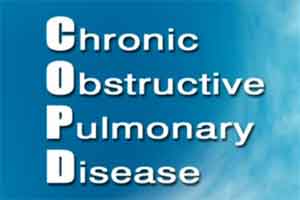- Home
- Editorial
- News
- Practice Guidelines
- Anesthesiology Guidelines
- Cancer Guidelines
- Cardiac Sciences Guidelines
- Critical Care Guidelines
- Dentistry Guidelines
- Dermatology Guidelines
- Diabetes and Endo Guidelines
- Diagnostics Guidelines
- ENT Guidelines
- Featured Practice Guidelines
- Gastroenterology Guidelines
- Geriatrics Guidelines
- Medicine Guidelines
- Nephrology Guidelines
- Neurosciences Guidelines
- Obs and Gynae Guidelines
- Ophthalmology Guidelines
- Orthopaedics Guidelines
- Paediatrics Guidelines
- Psychiatry Guidelines
- Pulmonology Guidelines
- Radiology Guidelines
- Surgery Guidelines
- Urology Guidelines
BODE index can predict COPD exacerbations: JAPI

INDIA: BODE index, a multidimensional measure of survival in chronic obstructive pulmonary disease (COPD), has significant power to predict the frequency of future exacerbations in Indian COPD patients, finds a recent study in the Journal of the Association of Physicians of India.
COPD is an inflammatory disease of the small airways in the lungs. The disease accounts for 10.9% of the total deaths in India in 2016 and is the second leading cause of death in the country. It is characterized by periods of exacerbations, an acute worsening of respiratory symptoms beyond normal daily variations which warrant a change in medication.
BODE index is composed of body mass index (B), the degree of airflow obstruction (O), dyspnoea (D), and exercise capacity (E). Studies have shown that the BODE index can predict future exacerbations, but similar data in Indian population is unavailable.
Mohan K Manu, Associate Professor, Department of Respiratory Medicine, Kasturba Medical College, Manipal, Karnataka, and colleagues conducted the study to evaluate the power of BODE index to predict the frequency of exacerbations of COPD in the Indian cohort.
The researchers conducted a prospective observational cohort study of COPD patients aged above 40 years. They assessed the BODE index at baseline and recorded the number of exacerbations at the end of 12 months. Spearman’s Rho and Poisson regression model were used to correlate the BODE index with the frequency of exacerbations.
A total of 540 patients were screened for inclusion and exclusion criteria in our department out of which 131 patients satisfied the inclusion criteria among whom 99 patients consented to participate in this study. Seven patients failed to perform spirometry, and three subjects could not complete the six-minute-walk test. A total of 89 patients were recruited in the study out of which eight were lost to follow-up, and three patients had missing data of a number of exacerbations. Finally, only 78 patients had complete data.
Also Read: Mucolytics in COPD reduces exacerbation, not associated with adverse effects
Key findings:
- Majority of the patients belonged to a 5-6 category in BODE index (32 %) and more than half of the patients (55 %) had three or more exacerbations in the last year.
- A highly significant correlation was seen between the BODE index at baseline and number of exacerbations at 12 months.
- A Poisson regression model was employed to evaluate the power of baseline BODE index to predict the number of exacerbations of COPD at the end of 12 months.
- A unit change in the BODE index at baseline had 1.25 times higher number of exacerbations at 12 months (95% CI: 1.17-1.33).
- Similarly, after adjusting for severity, a unit change in the BODE index at baseline had 1.24 times higher number of exacerbations at 12 months.
Also Read: Azithromycin reduces treatment failure in acute exacerbations of COPD, finds clinical trial
"Our study confirms the power of the BODE index in predicting the frequency of exacerbations of COPD and its applicability in Indian population as well. BODE index is a valuable multidimensional tool for COPD assessment and predictor of frequency of exacerbations in our patients with moderate to severe COPD. Further research is needed to assess the usefulness of the BODE index in stage 1 as compared to other stages of COPD," concluded the authors.
For further reference follow the link: www.japi.org

Disclaimer: This site is primarily intended for healthcare professionals. Any content/information on this website does not replace the advice of medical and/or health professionals and should not be construed as medical/diagnostic advice/endorsement or prescription. Use of this site is subject to our terms of use, privacy policy, advertisement policy. © 2020 Minerva Medical Treatment Pvt Ltd